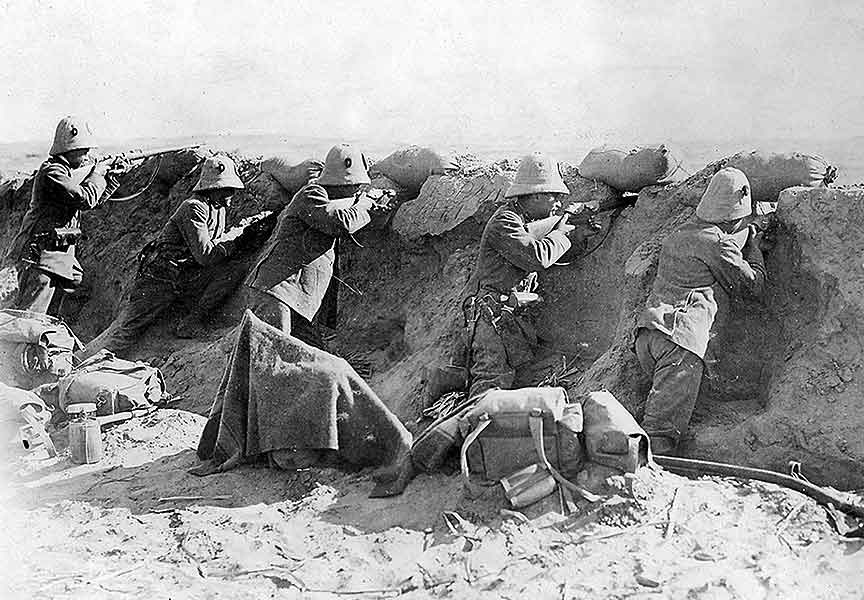1909 Tripolitan War-Italian Turkish War

Italian Troops
The Tripolitan War, otherwise known as the Italian Turkish War of 1911 began when the Italians declared war on Turkey in September. The Italians were interested in annexing Libya, the only available land in North Africa. All of the European powers opposed the action, but none were sufficiently motivated to take any action. The Italians expected the war to be brief, but it took them longer to achieve victory against stiff opposition.
The Italians had always coveted other European powers that had colonial processions in Africa. All of Northern Africa was controlled by European powers, except for Tripolitania and Cyrenaica (today Libya).
Both of those places were still under the control of the Ottoman Empire, which feared Italian encroachment. The Turks gave several American citizens concessions to carry out archeological excavation is Cyrenaica. The Italians immediately claimed it was not for archeology but rather to explore minerals, rights that Italian citizens had not received. The Italians were further aggrieved when a French company and not an Italian company acquired a small contract to build a road in Tripolitania. To further inflame public opinion, the Italians claimed that the French had occupied a small area along the border with French Morocco, a claim that turned out to be false. However, the combination of events had angered public opinion in Italy.
The Italian government responded by sending a transport ship to the port of Tripoli carrying guns and munitions.
It arrived on September 26, 1911. At the same time, the Italian government began calling to active duty reserve soldiers. The Italian government then issued an ultimatum giving the Ottomans 48 hours to accept the Italian occupation of Tripolitania and Cyrenaica. The Italians proposed that it remain under the sovereignty of the Ottoman Pasha but be administered by the Italians. On September 28, before the 48-hour ultimatum that the Italians had presented to the Ottomans had expired, ten Italian battleships and cruisers arrived in Tripoli. When the 48-hour ultimatum expired without a response, the Italians declared war on the Ottomans.
On September 30, the Italian Navy began a blockade of Tripoli, and for two days it naval ships bombarded the forts and other installation guarding the port. The Turks returned fire, but soon their ammunition was depleted, and on October 5, the Port of Tripoli was occupied by the Italians. The Italians attacked Turkish naval assets in the Adriatic as well.
While most European powers denounced the Turkish actions, the Italians continued to achieve victory on the battlefield, capturing Benghazi on October 20. Local forces continued to resist pledging their support to Turkey.
An uprising in Tripoli by the local population resulted in the death of 374 Italian soldiers, and those captured by the local Arabs were tortured brutally. The Italian response was equally brutal, as they killed a hundred so locals. Aviation history was made in the midst of this conflict when an Italian pilot on November 1, 1911, dropped explosive from his plane, marking the first use of an airplane as a weapon of war.
The Ottoman Empire in North Africa came to an end on November 6 when the Italian government announced that Tripolitania and Cyrenaica were now under full Italians administration of sovereignty. Fighting however, continued for many months.
 >
>